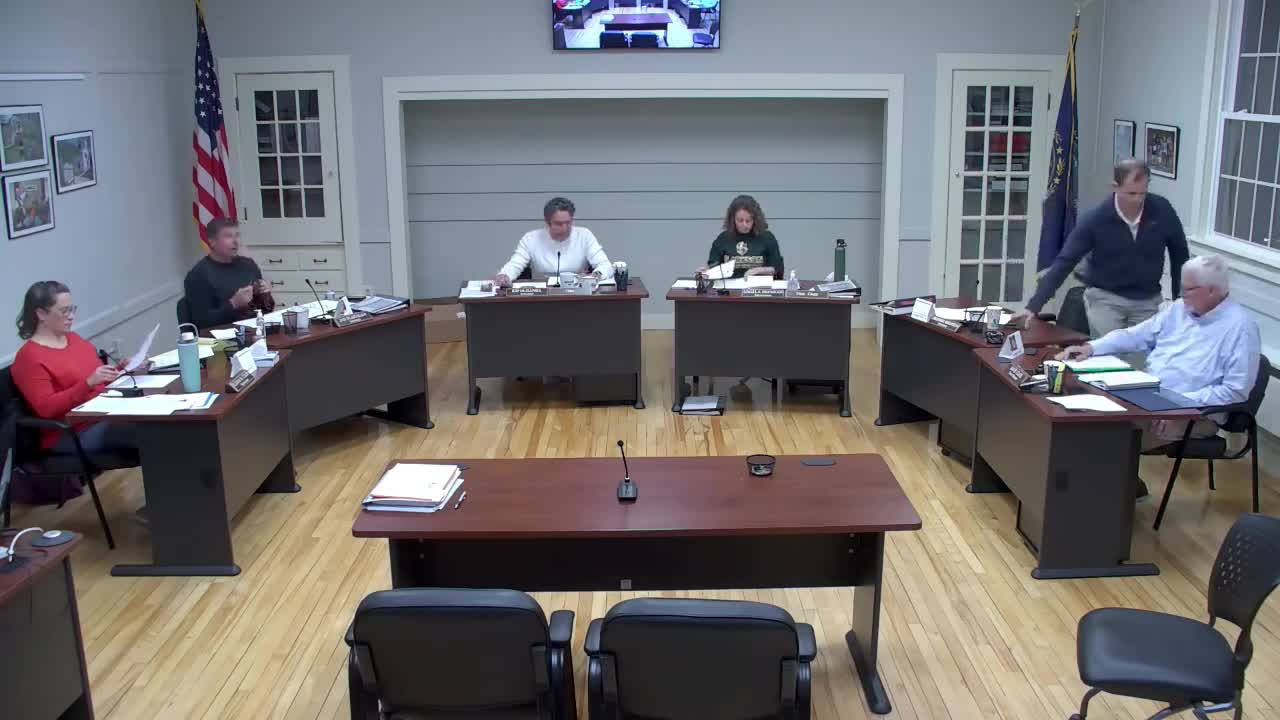Bow selectmen unanimously back a letter urging funding for Bow–Concord I‑93 improvements, including toll-rate tools to limit resident impact
Get AI-powered insights, summaries, and transcripts
Subscribe
Summary
The selectmen voted 5-0 to direct a letter to the governor and executive council supporting funding for the Bow–Concord widening project and recommended toll-rate measures to spare New Hampshire commuters, following presentations from Selectman Flanagan and local construction-industry representatives.
The Board of Selectmen voted unanimously on Oct. 14 to direct a letter supporting funding for the Bow–Concord I‑93 improvement project and related corridor work, and to seek tolling approaches that minimize net impact on New Hampshire residents.
Selectman Flanagan introduced the item, saying the Exit 193 widening and related projects have been removed from short-term funding lists and that the town should urge the executive council and governor to pursue funding options — including toll-rate adjustments — to get the project back on the 10-year plan. "Unless there's funding, these projects are never gonna happen," Flanagan said.
Ryan Audley, an owner of a construction firm and former AGC of New Hampshire president, briefed the board on the funding mechanics. He said federal highway funds generally do not pay for turnpike projects and that the state’s turnpike is funded by toll revenue. He described the New Hampshire DOT proposal to raise tolls on the turnpike and pair the increase with discounts or commuter passes for in‑state residents so the cost burden falls more on out‑of‑state drivers. "The way that happens is by raising the tolls, period," Audley said, and he added that the DOT’s proposal includes discounts intended to make the change neutral for regular residents.
Board members discussed the scale of the project and potential revenue options. A motion was made and seconded directing staff to prepare a letter favoring funding for Exit 1/I‑93 Bow–Concord expansion as part of a 10‑year plan and to support toll measures that aim to be revenue-neutral for New Hampshire residents. The motion passed 5–0.
Why it matters: The Exit 193/Bow–Concord corridor project is tied to town safety and economic development goals. Without a funding mechanism, the DOT has removed the widening from near-term plans; the board’s letter is intended to signal local support for state-level funding tools.
Board next steps: Staff will prepare the letter of support to the governor and executive council reflecting the board’s position; the board requested language that asks for resident-focused discounts or commuter pass options so local drivers are not unduly burdened.
